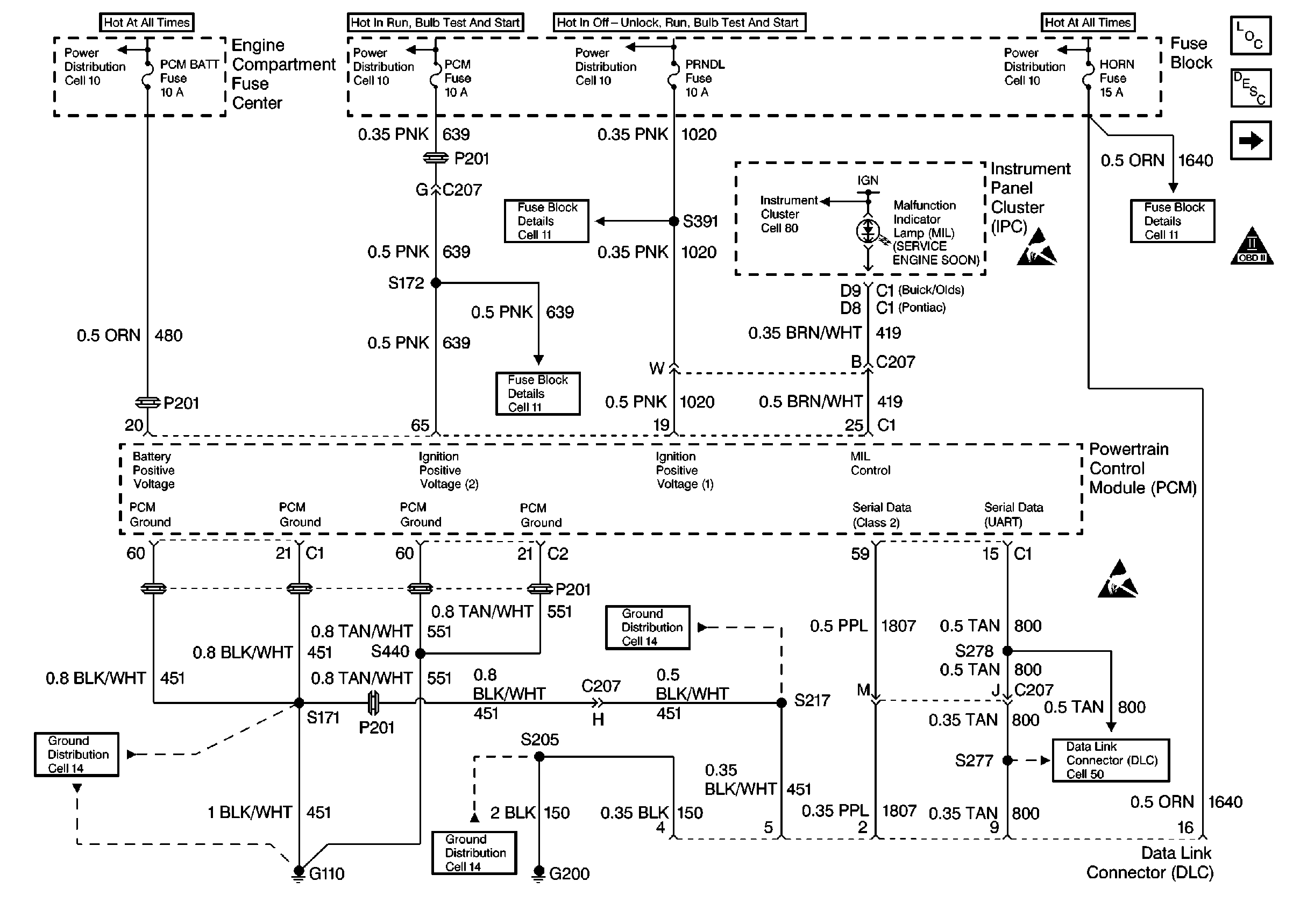Refer to
Power, Ground, MIL, and DLC

Circuit Description
The Class 2 serial data circuit to the DLC allows bi-directional communication between the PCM and the scan tool. If communication between the scan tool and the PCM cannot be established, the procedure in Data Link Connector Diagnosis should be used to diagnose the condition.
Diagnostic Aids
Check the following items:
| • | For the PCM to establish communication with the scan tool, system voltage must be between 9.0 and 16.0V. If system voltage is not within this range, refer to Charging System Section 6D3 for diagnosis. |
| • | Ensure that the correct application (model year, carline, VIN code) has been selected on the scan tool; if communication still cannot be established try the scan tool on another vehicle to ensure that the scan tool, Vehicle Interface Module, or cables are not the cause of the condition. |
| • | An intermittent may be caused by a poor connection, rubbed through wire insulation or a wire broken inside the insulation. Check for poor connections or a damaged harness. Inspect the PCM harness and connectors for improper mating, broken locks, improperly formed or damaged terminals, poor terminal to wire connection, and damaged harness. |
Test Description
The number below refers to the step number on the Diagnostic Table.
-
This vehicle is equipped with a PCM which utilizes an Electrically Erasable Programmable Read Only Memory (EEPROM). When the PCM is being replaced, the new PCM must be programmed. Refer to Powertrain Control Module Replacement/Programming in Powertrain Control Module (PCM) and Sensors.
Step | Action | Value(s) | Yes | No |
|---|---|---|---|---|
1 | Was the Powertrain On-Board Diagnostic System Check performed? | -- | ||
2 |
Is the test light ON? | -- | ||
3 | Probe the DLC battery feed circuit with a test light to chassis ground. Is the test light ON? | -- | ||
4 |
Does the voltage measure the specified value? | 0V | ||
5 |
Does the voltage measure the specified value? | 0V | ||
6 |
Was a problem found? | -- | ||
7 |
Was a problem found? | -- | ||
8 | Locate and repair short to ground in the Class 2 serial data circuit. Is action complete? | -- | -- | |
9 | Locate and repair open in the DLC ground circuit(s). (Terminal 4 or 5) Is action complete? | -- | -- | |
10 | Locate and repair open or short to ground in the DLC battery feed circuit. Is action complete? | -- | -- | |
Replace the PCM. Important: Replacement PCM must be programmed. Refer to Powertrain Control Module Replacement/Programming . Is action complete? | -- | -- |
